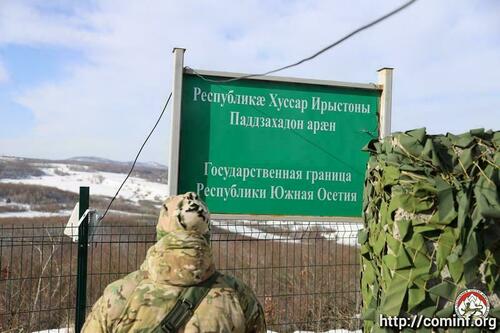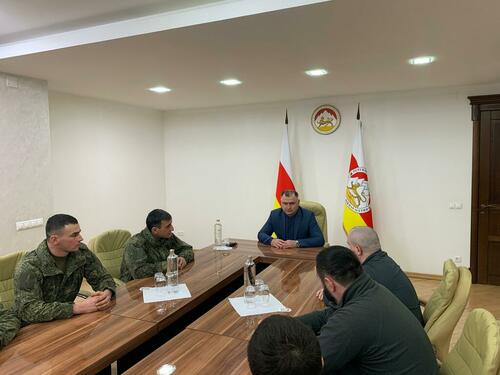In the speech of the Georgian Prime Minister Irakli Garabishvili at the 78th session of the UN General Assembly in New York, there was nothing that Georgia had not talked about before and that was not in their official position, said State Advisor to President of South Ossetia Vyacheslav Gobozov.
On September 22, Irakli Garibashvili, speaking during the general political discussion of the 78th session of the UN General Assembly, said that Russia “still occupies 20 percent of the territory” of his country, and called on the international community to put pressure on Moscow so that it “fully implements the agreement on ceasefire concluded in 2008."
Gobozov has emphasized that Garibashvili’s appeal to the Ossetians and Abkhazians was directed to everyone except the Ossetians and Abkhazians.
“We know very well the true attitude of any Georgian regime; we know the position of the political elites of Georgia regarding South Ossetia and Abkhazia. And their position does not change, it will always be anti-Ossetian and anti-Abkhaz,” Gobozov said.
The politician noted the international and intra-Georgian aspects in Garibashvili’s speech.
“The international aspect is, first of all, related to the so-called neutrality of Georgia towards Russia. The so-called pro-Russian position of Georgia has begun to be exaggerated in various international publications and international political expert circles. Georgia has been subject to a lot of serious criticism. It got to the point that they had to launch their president with pro-Western statements. Therefore, Garibashvili had to show that the so-called pro-Russian position was not the strategic position of Georgia. That their vector in NATO remains unchanged,” he has noted.
As for the intra-Georgian aspect, Gobozov added, here the anti-Russian factor is a reality of Georgian public life.
“Therefore, in order not to lose the electorate within Georgia, Garibashvili had to make such a harsh anti-Russian statement. And therefore, his statement at the General Assembly had a very clear and internal Georgian aspect,” Gobozov emphasized.
In his opinion, this once again confirms that, despite the illusions in certain Russian political circles about the thaw of the Russian-Georgian relations, they must understand one thing: anti-Russian tendencies in Georgian public opinion are a reality.
The head of the information and analytical department of the Presidential Executive Office of the Republic of South Ossetia, political scientist Yuri Vazagov also believes that the anti-Russian trend in the Georgian politics still remains dominant, although there are claims from the so-called pro-Russian Georgian political forces that supposedly 80% of the population of Georgia is in favor of Russia.
“But in fact, this is far from reality, since throughout the entire period of Georgia’s existence as the independent state, Western structures, official and non-governmental foundations were engaged in the formation of virtually new apolitical elite of Georgia, new layers of society. And I must say that they have largely succeeded in this,” Vazagov said.
The political scientist has noted that in Georgia there are numerous layers of the active part of society, these are public organizations, bloggers, information specialists, that is, an active part of the youth, and they are generally oriented towards the West, and do not consider relations with Russia at all either as promising or in any other aspect.
“Throughout the entire period of the special military operation in the information space of Georgia, in social networks, their behavior is also quite unambiguous. They can be called pro-Ukrainian, pro-Western and strictly anti-Russian. And the attitude towards the Ossetians and Abkhazians is also quite frank. Their clear expectation is that Russia will be defeated and they will be able to without much effort get what they have not been able to achieve for three decades,” the political scientist jas noted.
At the same time, Vazagov has noted that if in relation to Abkhazia Georgia still provides for the possibility of at least some illusory negotiations and granting them some kind of autonomous status, then in relation to South Ossetia Tbilisi has a tougher attitude.
“That is, they don’t even see us as some kind of negotiating partners. Therefore, of course, Garibashvili’s statement about the Ossetian and Abkhazian brothers was really aimed at everyone except the Abkhazians and Ossetians themselves, since society in Georgia is generally unambiguous. Politicians and diplomats, of course, can make some curtsies for the sake of diplomatic etiquette, some nuances, but again they cannot help but reflect in their activities the mood that exists in Georgia. Otherwise, they may suffer a crushing defeat in the next elections,” Vazagov has emphasized.







